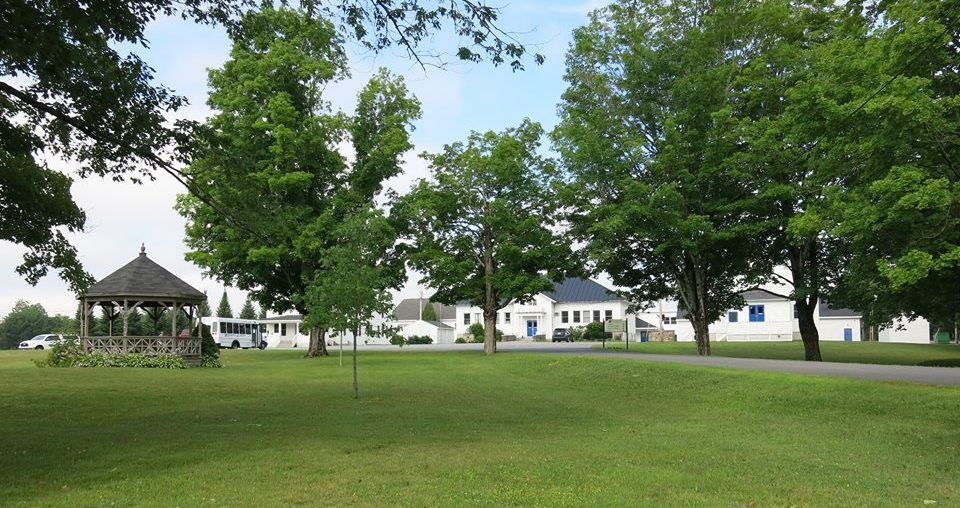
(photo credit: Erskine Academy)
Grade 12
High Honors: Molly Anderson, Carson Appel, Kassidy Barrett, Abigail Beyor, Eve Boatright, Angel Bonilla, Marianna Charlebois, Courtney Cowing, Tianna Cunningham, Breckon Davidson, Nicole DeMerchant, Lillian Dorval, Hailey Farrar, Brianna Gardner, Loralei Gilley, Reiana Gonzalez, Alivia Gower, Cooper Grondin, Nabila Harrington, Alexzander Hoffman, Kassidy Hopper, Grady Hotham, Grace Hutchins, Olivia Hutchinson, Hallie Jackson, Beck Jorgensen, Kaiden Kelley, Matthew Knowles, Meadow Laflamme, Emmet Lani-Caputo, Dale Lapointe, Gwen Lockhart, Kendal Longtin, Malachi Lowery, Emily Majewski, Lily Matthews, Brady Mayberry, Maddison Paquet, Timber Parlin, Hannah Patterson, Kayla Peaslee, Jonathan Peil, Gabriel Pelletier, Michael Perez, Jenna Perkins, Sophia Pilotte, Kaden Porter, Alexis Rancourt, Cadence Rau, Samantha Reynolds, Sarah Robinson, Ally Rodrigue, Conner Rowe, Noah Rushing, Emmalee Sanborn, Jarell Sandoval, Gabriela Sasse, Zuriah Smith, Sophie Steeves, Emma Stred, Jacob Sullivan, Paige Sutter, Mackenzie Toner, Emma Tyler, Lauren Tyler, Katherine Williams, Damon Wilson and Joseph Wing.
Honors: Andrew Bentley, Samuel Boynton, Caleb Buswell, Grace Ellis, Erin Fontaine, Ciara Glidden, Acadia Kelley, Jakob Kennedy, Brady Kirkpatrick, Casey Kirkpatrick, Siena Klasson, Zephyr Lani-Caputo, Dinah Lemelin, River Meader, Gage Moody, Angelina Ochoa, Kyleigh Painchaud, Karen Potter, Kiley Stevens, Daniel Stillman, Matthew Terry and Aidan Witham.
Grade 11
High Honors: Duncan Bailey, Lyla Bailey, Robin Boynton, Elizabeth Brown, Nolan Burgess, Makayla Chabot, Elise Choate, Alexia Cole, Caleigh Crocker, Noah Crummett, Gavin Cunningham, Ciara Fickett, Hunter Foard, Aaralyn Gagnon, Caleb Gay, Tucker Greenwald, Tara Hanley, Natalie Henderson, Hannah Kugelmeyer, Aidan Maguire, Johanna Malitz, David McCaig, Madison McCausland, Akela Mitchell, Austin Nicholas, Jeremy Parker, Nathan Polley, Jessica Pumphrey, Adam St. Onge, Kinsey Stevens, Reese Sullivan and Baruch Wilson.
Honors: Abigail Adams, Austin Armstrong, Lacey Arp, Bryce Boody, Isabella Boudreau, Heather Bourgoin, Kellsie Boynton, Wyatt Bray, Connor Brown, Kaleb Brown, Carol Caouette-Labbe, Hayden Chase, Simon Clark, Thomas Crawford, Brielle Crommett, Isabella Day, Hailey Estes, Hailey Fongemie, Kaylee Fyfe, Brayden Garland, Julius Giguere, Leah Grant, Nathan Hall, Jessica Hendsbee, Lilliane Herard, Bella Homstead, Trinity Hyson, Conor Jones, Kameron Kronillis, Mackenzie Kutniewski, Sophie Leclerc, Landon Lefebvre, Brody Loiko, Jack Lyons, Richard Mahoney III, Liberty Massie, Holden McKenney, Abigail Miller, Morgan Miller, Gavin Mills, Lucas Mitchell, Royce Nelson, Jazel Nichols, Alejandro Ochoa, Kevin Pelletier, Andrew Perry, Remy Pettengill, Keith Radonis, Romin Riedmann, Gavin Rowe, Giacomo Smith, Lara Stinchfield, Hayden Turgeon, Jack Uleau, Haley Webb, Elijah York and Melanie York.
Grade 10
High Honors: Haileigh Allen, Ava Anderson, Emmett Appel, Noah Bechard, Geneva Beckim, Octavia Berto, Brooke Blais, Olivia Brann, Carter Brockway, Keenan Clark, Madison Cochran, Hannah Cohen-Mackin, Andra Cowing, Lauren Cowing, Gabrielle Daggett, Aydan Desjardins, Aidan Durgin, Chloe French, Clara French, Keeley Gagnon, Hailey Garate, Ellie Giampetruzzi, Kailynn Houle, Walker Jean, Ava Kelso, Sophia Knapp, Chase Larrabee, Eleanor Maranda, Jade McCollett, Madison McNeff, Makayla Oxley, Gavyn Paradis, Wallace Pooler IV, Carter Rau, Elsa Redmond, Lillian Rispoli, Laney Robitaille, Carlee Sanborn, Aislynn Savage, Jordyn Smith, Zoey Smith, Parker Studholme, Grace Vashon and Clara Waldrop.
Honors: Daphney Allen, Emily Bailey, Bryana Barrett, Rylan Bennett, Jayda Bickford, Kaleb Bishop, Lauryn Black, Landen Blodgett, Brody Campbell, Paige Clark, Kaden Crawford, Lillian Crommett, Trinity DeGreenia, Brady Desmond, Thomas Drever, Ryan Farnsworth, Lucas Farrington, Kenneth Fredette, Kaylene Glidden, Tristan Goodwin, Blake Grady, Jonathan Gutierrez, Trent Haggett, Landen Hayden, Emma Henderson, Serena Hotham, Parker Hunter, Alivia Jackson, Montana Johnson, Rachel Johnson, Rion Kesel, Kaiden Kronillis, Bodi Laflamme, Shelby Lincoln, Jack Lucier, Owen Lucier, D’andre Marable, Justice Marable, Abigail McDonough, Shannon McDonough, Elijah Moore, Ella Moore, Addison Mort, Colin Oliphant, Kiana Osorio, Noah Pelletier, Ava Picard, Sadie Pierce, Victoria Rancourt, Justin Reed, Nathan Robinson, Joslyn Sandoval, Kyle Scott, Achiva Seigars, Larissa Steeves, Kaylee Tims and Adrianna Vernesoni.
Grade 9
High Honors: Connor Alcott, Emily Almeida, Savannah Baker, Addyson Briggs, London Castle, Kolby Caswell, Nathan Choate, William Choate, Lillian Clark, Madeline Clement-Cargill, Sylvia Davis, Joshua Denis, Lauren Dufour, Stephen Gould, Madison Griffiths, Mia Hersom, Kaylyn Hertel, Halle Jones, Kasen Kelley, Kayle Lappin, Ava Lemelin, Wyatt McKenney, Jack Murray, Elijah Nelson, Bayley Nickles, Jordyn Parise, Gwendolyn Parker, Ruby Pearson, Abigail Peil, Elijah Pelkey, Isabelle Pelotte, Emily Piecewicz, Taisen Pilotte, Hannah Polley, Eli Redmond, Michael Richardson, Owen Robichaud, Leahna Rocque, Brynna Rodrigue, Jackie Sasse, Edward Schmidt, Jaelyn Seamon, Kathryn Shaw, Nichala Small, Madelynn Spencer, Evelyn Stevenson, Kayla Stred, Gentry Stuart, Abigail Studholme, Phoebe Taylor, Donovan Thompson, Kammie Thompson, Addison Turner, Kamryn Turner and Finnegan Vinci.
Honors: Anders Bassett, Kylie Bellows, Brock Bowden, Landon Boynton, Addyson Burns, Benjamin Carle, Emmaleigh Cintron, Drew Clark, Timothy Clavette, Cambell Coutts, Claire Davis, Audryanna DeRaps, Charles DeSchamp, Jacob Faucher, Willow Haschalk, Aidan Huff, Jacob Hunter, Timothy Kiralis, Jacob Lavallee, Brianne Libby, Hayden Little, Brayden McLean, Paige McNeff, Parker Minzy, Kaiden Morin, Tucker Nessmith, Phoebe Padgett, Jackson Pelotte, Lilian Piecewicz, Desirae Proctor, Hannah Ratcliff, Alexander Reitchel, Autumn Sawyer, Felicity Seagrave, Haidyn Smith, Leah Targett, Clara Theberge, Alexander Walker, Oryanna Winchenbach, Addison Witham, Brody Worth and Maddilyn York.













